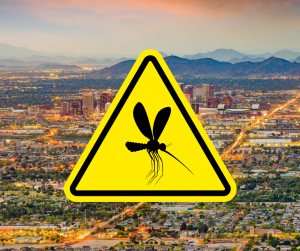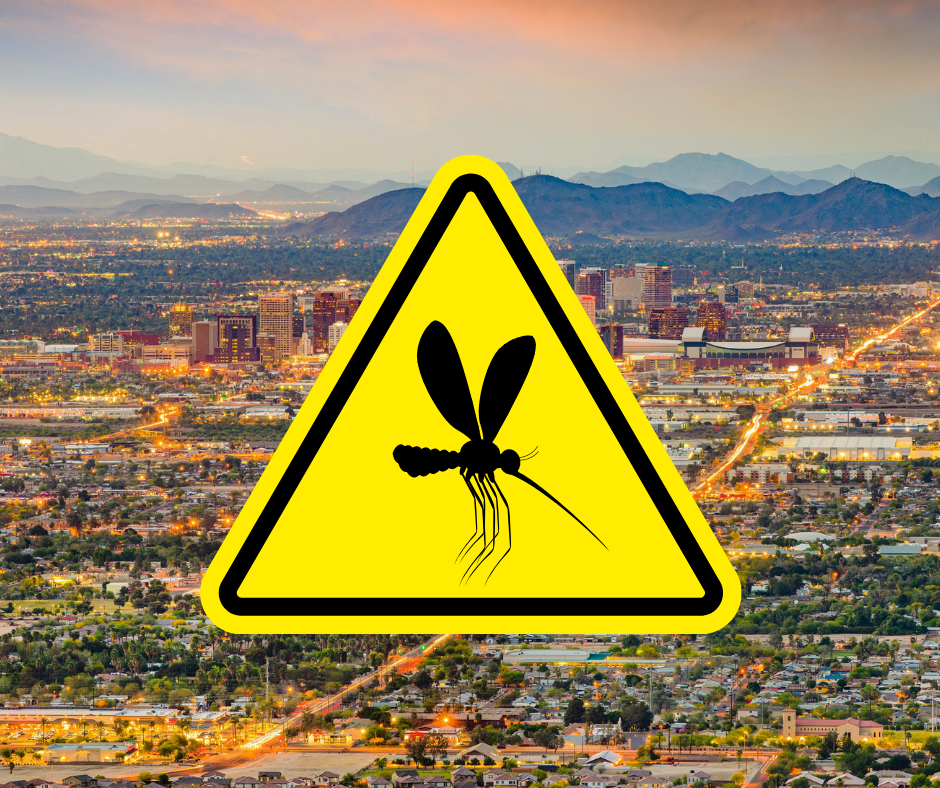 Amid a wetter monsoon season than recent years, Arizona is experiencing a record high season for the West Nile virus, which transmits through mosquito bites. Through late last week, Arizona had seen 123 cases and four deaths. Nearly all of them have been in Maricopa County, where West Nile virus has been detected in record numbers of mosquitos studied.
Amid a wetter monsoon season than recent years, Arizona is experiencing a record high season for the West Nile virus, which transmits through mosquito bites. Through late last week, Arizona had seen 123 cases and four deaths. Nearly all of them have been in Maricopa County, where West Nile virus has been detected in record numbers of mosquitos studied.
Most people infected with West Nile virus don’t get symptoms. However, the elderly and those with weakened immune systems are more prone to neuroinvasive diseases that can be fatal.
West Nile virus was first detected in Arizona in 2003. People are infected through a bite from an infected mosquito. Birds and other animals can’t transmit it, and the West Nile virus can’t be spread through person-to-person contact.
The most effective way to guard against West Nile virus is protecting yourself and your family from mosquitoes. Fortunately, you can accomplish this by taking some simple steps.
First, take steps to prevent mosquito bites throughout the day. Use an EPA-registered insect repellent (see our tips for applying repellent to small children) and make sure windows and doors that you may leave open have intact screens. Long-sleeved shirts and long pants help keep mosquitoes away from your skin.
Protect your home by eliminating standing water where mosquitoes lay their eggs. Only a small amount in a flower pot, bucket, upturned children’s toys, or any other potential basin can become a mosquito breeding ground. Standing water that can’t be discarded can be treated with larvicides that usually are available at the hardware store. Also keep your yard clear of debris to reduce places where mosquitoes like to breed.
A wetter-than-usual monsoon season has been a refreshing break from the summer heat. But it does come with a greater need to be aware of mosquitoes.
Please visit our website for more information on mosquito-borne illnesses and how to protect yourself.










